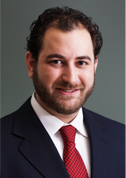© 2013 The Texas Lawbook.
By Natalie Posgate
Staff Writer for The Texas Lawbook
When lawyers at Carrington, Coleman, Sloman & Blumenthal decided to represent a Texas death row inmate for his habeas proceedings, they expected the intangible reward of helping someone in need.
But four and a half years and more than 11,000 pro bono hours later – valued at approximately $3.5 million – they also have received a tangible recognition for their efforts.
In September, Dallas’ Carrington Coleman and Denver-based Rothgerber Johnson & Lyons will receive this year’s American Bar Association Exceptional Service Award for Death Penalty Representation. The award recognizes the firms’ fight for justice for Manuel Velez, a man wrongfully convicted of murdering a baby in 2005.
Thanks to the firms’ tireless work, Velez is no longer on death row, and he could become a free man. In April, Brownsville District Court Judge Elia Lopez recommended a new trial for Velez because attorney incompetence prevented the jury in the original trial to hear evidence of his innocence.

Lawyers said their work was not motivated by the prospect of an award. Instead, they noted the desperate need for successful lawyers to work pro bono on death penalty cases.
“I wish more firms would get involved because more cases need this representation,” said Lyndon Bittle, a partner at Carrington Coleman who is co-leading Velez’s case. “We didn’t even know that award existed.”
Neil Burger, another Carrington Coleman partner heavily involved in the case, emphasized the simplicity of deciding to say “yes” to such pro bono efforts.
“There’s a person’s life at stake,” he said. “I don’t think [the importance] can be diminished in any way when someone’s life is at stake.”
The Nightmare Begins
The case dates to Halloween of 2005 and a Brownsville home where Manuel Velez lived with his girlfriend, Acela Moreno. He had moved in two weeks earlier. That evening, Velez was taking care of Moreno’s 11-month-old son, Angel, when suddenly the baby had difficulty breathing. Velez rushed to the bedroom to awake Moreno. He dialed 911.
It was too late.
The next day in the hospital, doctors declared the baby brain dead. He died Nov. 2 after nurses took him off a ventilator.
The autopsy revealed that the baby’s death resulted from two skull fractures and subdural hematoma (blood to the brain), a result of extreme force trauma to the head.
Velez and Moreno were arrested and charged for capital murder. Family and friends described Velez as gentle, treating his own children and others’ with care. Moreno, however, had a different reputation. Family members claimed she had abused her one-year-old.
But that information was never relayed in the trial. After a plea bargain, Moreno took a 10-year sentence. She admitted to striking the child on or around Oct. 31. She later testified against Velez.
The state’s expert medical witnesses found that the child’s oldest head injury was no more than two weeks old. They concluded that the killer had to be Velez, since he coincidentally moved in two weeks before the baby’s death.
Meanwhile, Velez’s attorneys did little during trial to defend him. They didn’t even summon expert witnesses to challenge the state’s medical evidence. During the three years leading up to trial, they barely visited Velez in prison. When they did, they kept it brief.
Judge Abel Limas, who would later plead guilty for racketeering in various cases pending in his court, convicted Velez of capital murder in October 2008 and sentenced him to death.
Velez lost hope. Then, a new set of lawyers came into the picture.
A Second Chance
As part of the ABA Death Penalty Representation Project, the Rothgerber firm agreed to represent Velez for his habeas proceedings. The project’s stated goal is to “address the crisis of counsel in the death penalty system” by expanding the pool of lawyers willing to serve as pro bono counsel for death row inmates in post-conviction proceedings.
Because death penalty cases are less common legal matters in Colorado, Rothgerber approached Carrington Coleman, with which it had a relationship. Texas also happens to be prominent for pursuing death penalty proceedings.
Suddenly, Velez had a team of attorneys who had his back. From Rothgerber, there were partners Greg Kanan, Tami Goodlette and Jaclyn Casey. From Carrington Coleman (in addition to Lyndon Bittle and Neil Burger) there was associate Jenny Smith, along with at least a dozen other attorneys who have contributed throughout the process.
The two firms immediately got to work. Burger first met with Velez in early 2009. They talked for six hours – likely the most time an attorney had ever spent with Velez.

“His level of trust in attorneys was extremely low,” Burger said. “In that first meeting, you could tell that just having someone talk to him and listen to his story and everything he had to say was extremely important [to him].”
In January 2012, the two firms submitted the habeas petition, which contained more than 360 pages of compelling medical evidence. It strongly suggested the head injuries that caused the baby’s death were incurred well before Velez’s involvement.
Perhaps most compelling were the findings of a Pennsylvania neuropathologist’s discoveries about the infant’s brain injuries.
In a follow-up analysis of the medical examiner’s autopsy report, the doctor revealed that the subdural hematoma was inflicted between 18-36 days before the baby’s death. That analysis provided critical information for Velez’s defense of innocence, since he was in Tennessee from September to mid-October working on a construction project.
Also included in the petition were the child’s pediatric records, which revealed signs of head injury in June or July 2005, before the baby and his mother lived with Velez. The records revealed a sudden, significant increase in the child’s head circumference in a period of four to six weeks. Some sort of violent head trauma during that period was the only justification.
Meanwhile, senior staff attorney Brian Stull of the American Civil Liberties Union (who also nominated the firms for the ABA award) worked with Velez on the direct appeal. Stull’s work resulted in a partial victory in June 2012. The Texas Court of Criminal Appeals affirmed Velez’s murder conviction but overturned his death sentence, concluding it had been based on the state’s use of false evidence.
But a life in prison was not good enough for Rothgerber and Carrington Coleman. Currently, the team of lawyers are fighting for Velez’s innocence and striving to get him out from behind bars.
After submitting their habeas petition and working for months to revise it, Team Velez presented its findings in December 2012 at a hearing in the Cameron County Courthouse (where the original trial occurred).
According to Stull’s award nomination form, the attorneys presented live testimony of six physicians as well as the recorded depositions of three additional experts and three lay witnesses who substantiated Velez’s gentle and responsible care of children.
The medical examiner, who originally testified about the presumed two-week time frame for the head injury, revised his opinion and agreed that the injuries were likely older.
Stull’s form also included a statement from an attorney from Velez’s previous trial counsel, who acknowledged during testimony “that he (and co-counsel) had badly botched the defense, resulting in the death sentence of a man he firmly believed was innocent.”
On April 2, Judge Elia Lopez issued her 63-page opinion, finding ineffective assistance of counsel and recommending that Velez receive a new trial.
Rothgerber and Carrington Coleman are currently waiting on the Texas Court of Criminal Appeals’ response to Judge Lopez’s opinion, expected, at the earliest, in September.
Challenges and Surprises
Bittle said the most surprising aspect of the experience was learning “how many things went wrong” in the original trial.
For Burger, the biggest surprise came in Velez himself – the spirit he maintained throughout the process despite “the horrible wrongs” he had endured.
“That’s been very surprising to me. I’ve never seen him appear to be frustrated,” Burger said.
Bittle and Burger expressed dismay at Velez’s previous representation, led by Hector Villareal, who passed away in 2011 from liver failure at age 60.
Other media sources have suggested Villareal’s lackluster performance was the best he could do, given the circumstances and limited resources.
“That’s an offensive argument,” Bittle said. “Like Villareal or any other trial lawyer, they do not have unlimited resources, but the Constitution requires the county to provide a reasonable defense. There is no reason he could not have contacted doctors to provide the kind of evidence that we provided at the habeas hearing.”
The outcome of the original trial presented many challenges. Bittle said the biggest obstacle to overcome was the “uphill battle” that must be fought after a capital murder conviction.
“Once you’ve been convicted, there are a lot of hurdles [to overcome] to convince the judicial system that it has made a mistake,” Bittle said.
Beyond the legal issues, Burger and Bittle encountered a couple more surprises by taking the case. For example, Bittle said, the lawyers got “really educated on neural pathology.”
Burger added, “I’ve been to prison more times than I thought I ever would.”
© 2013 The Texas Lawbook. Content of The Texas Lawbook is controlled and protected by specific licensing agreements with our subscribers and under federal copyright laws. Any distribution of this content without the consent of The Texas Lawbook is prohibited.
If you see any inaccuracy in any article in The Texas Lawbook, please contact us. Our goal is content that is 100% true and accurate. Thank you.
